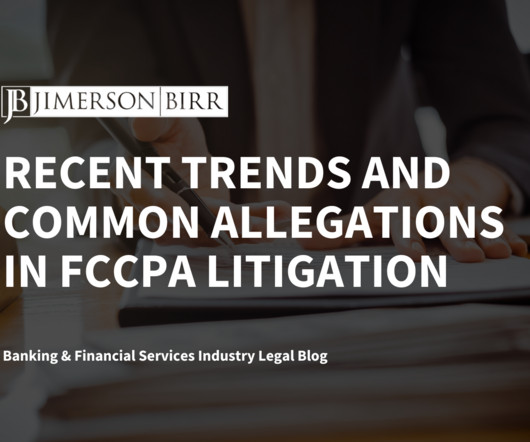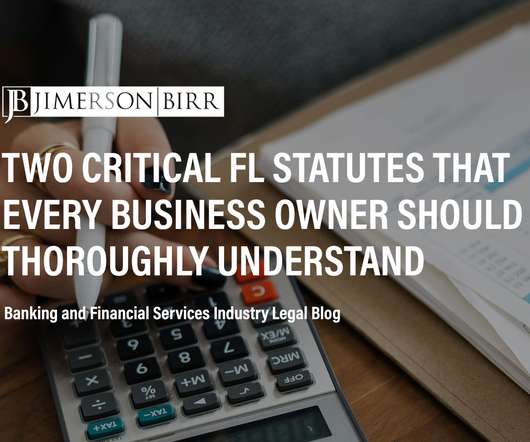What Debt Collectors Can and Can’t do on Social Media
The Kaplan Group
MARCH 24, 2022
Debt collectors can now contact consumers on social media. Here’s the background and all you need to know about what debt collectors can and can’t do on social media. In November 2021, The CFPB made some long-awaited updates to the Fair Debt Collection Practices Act. Yes, it’s true.


















Let's personalize your content